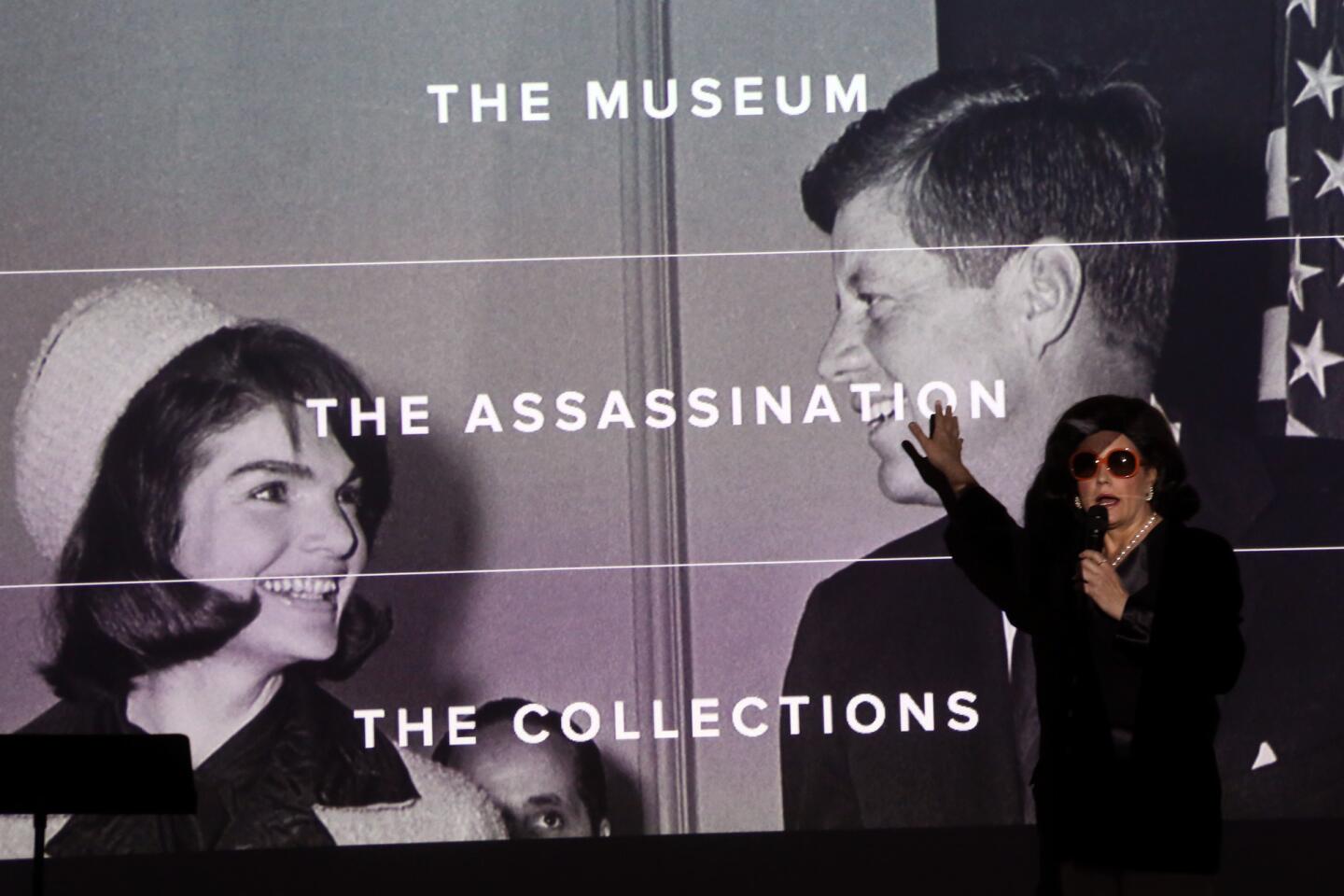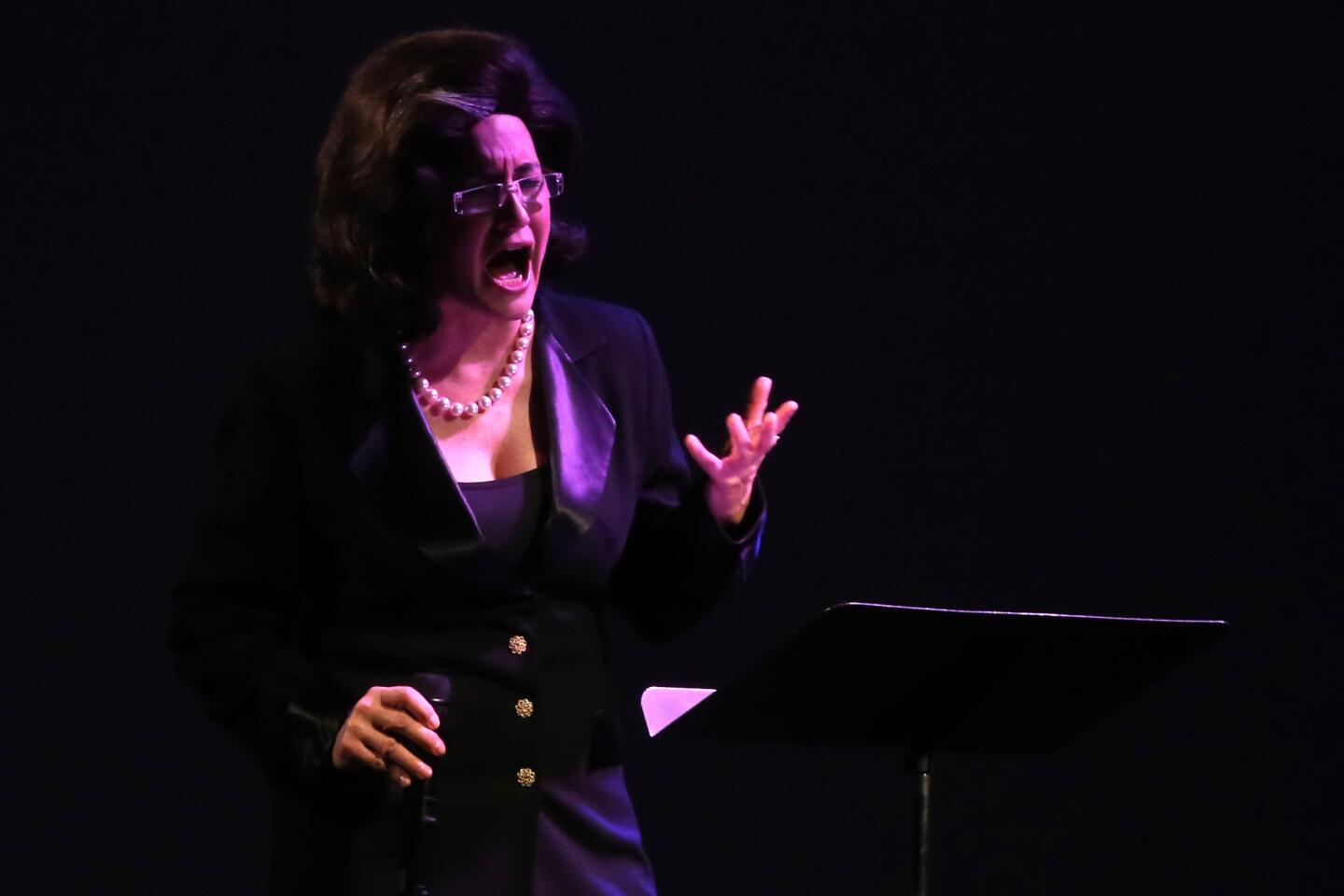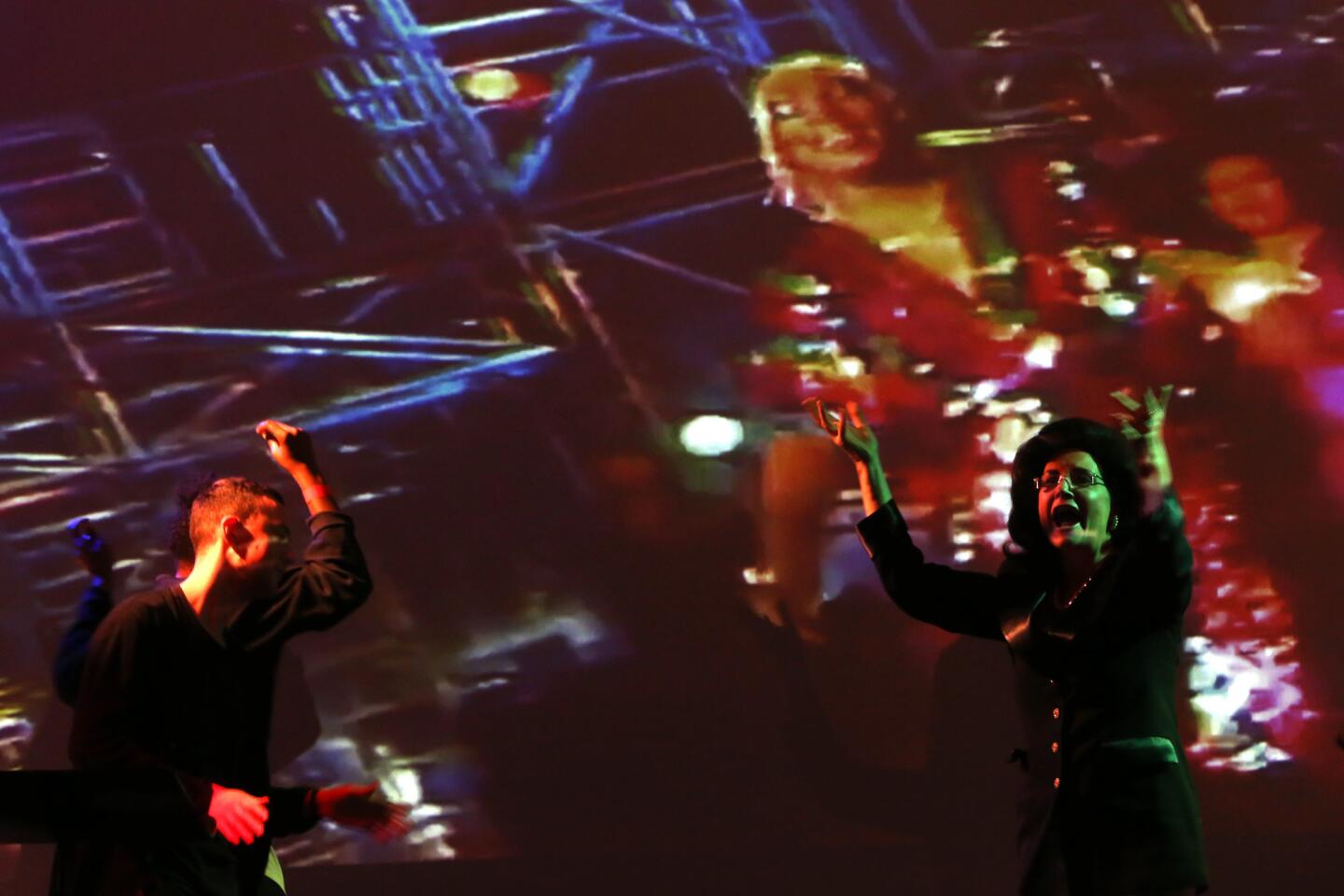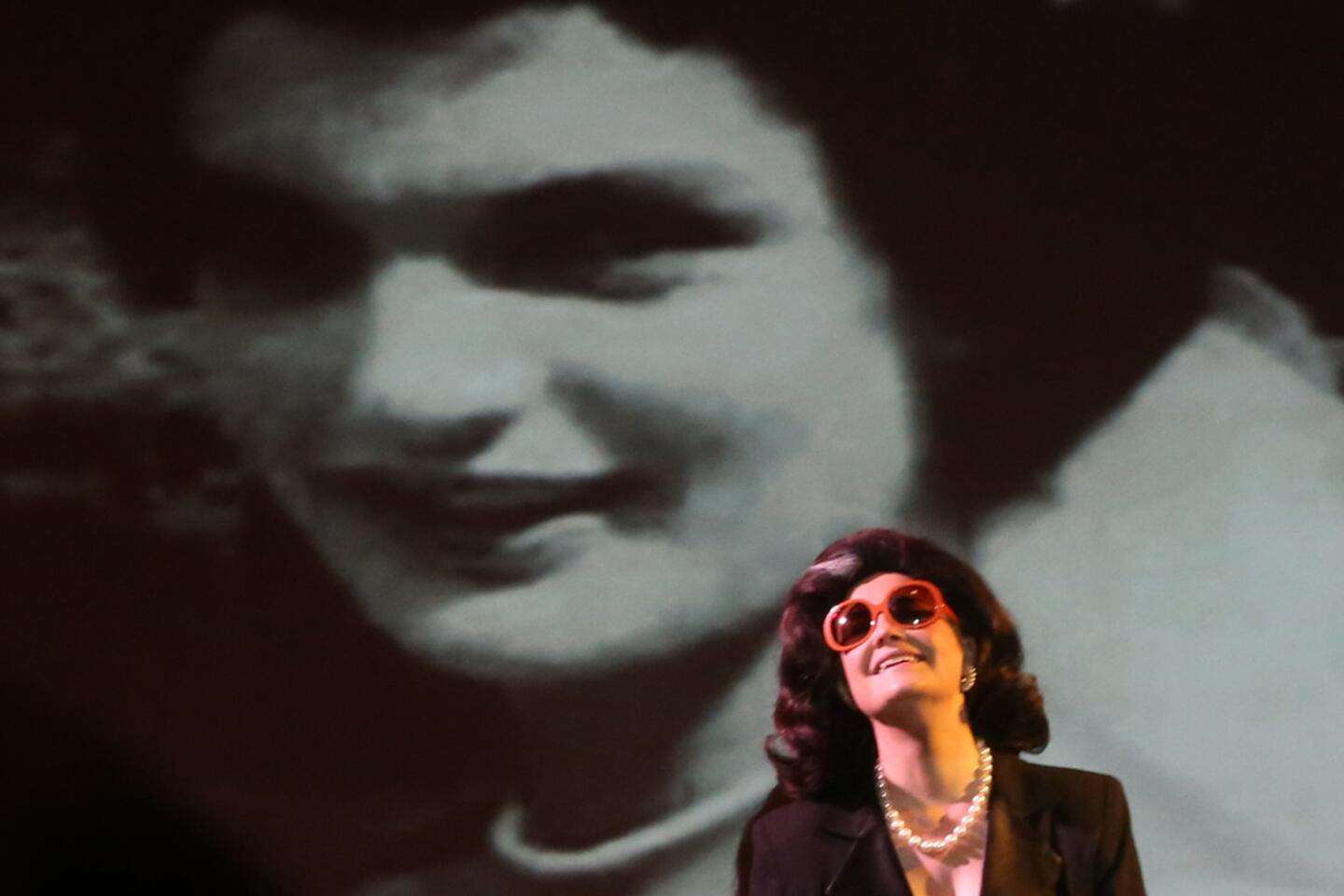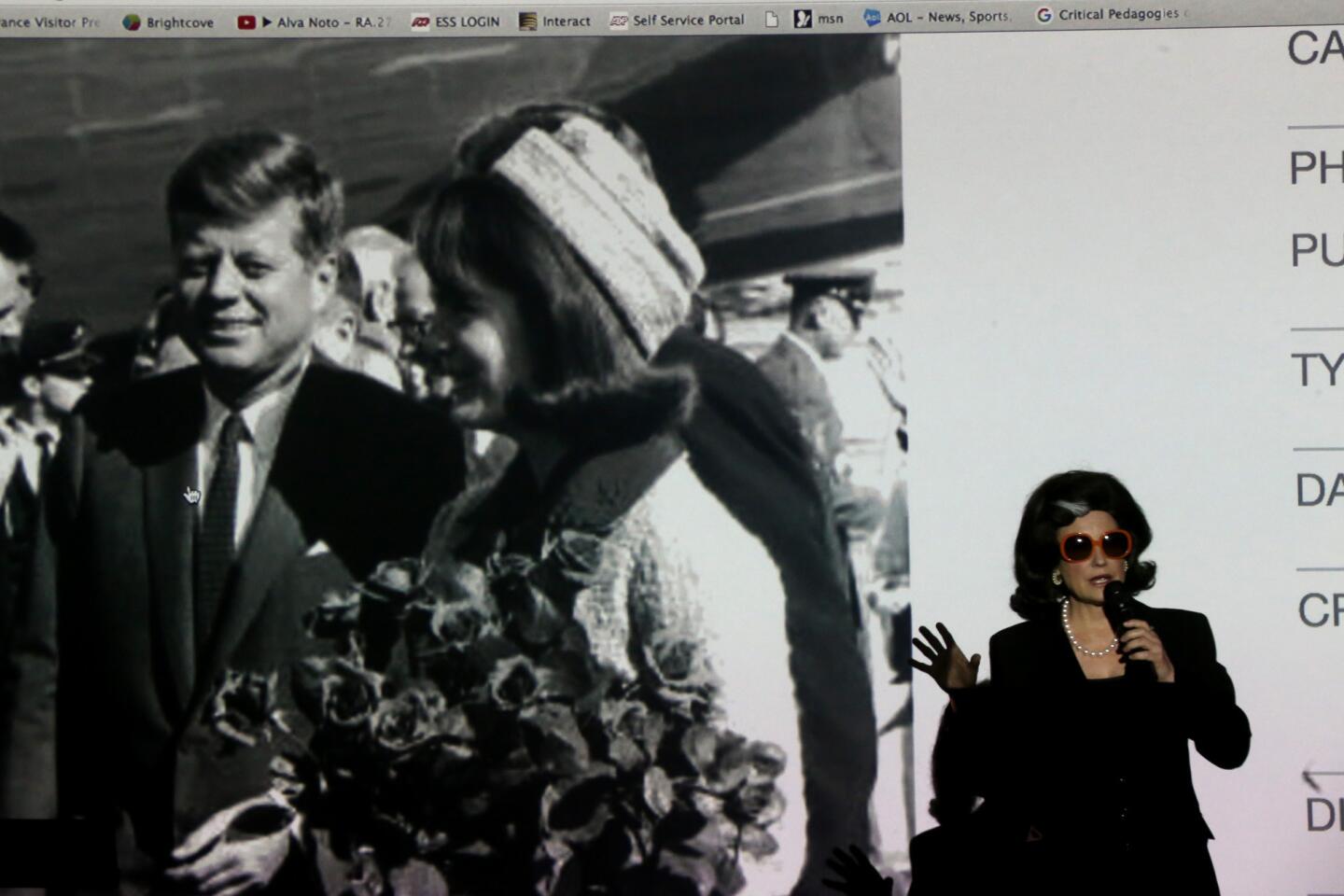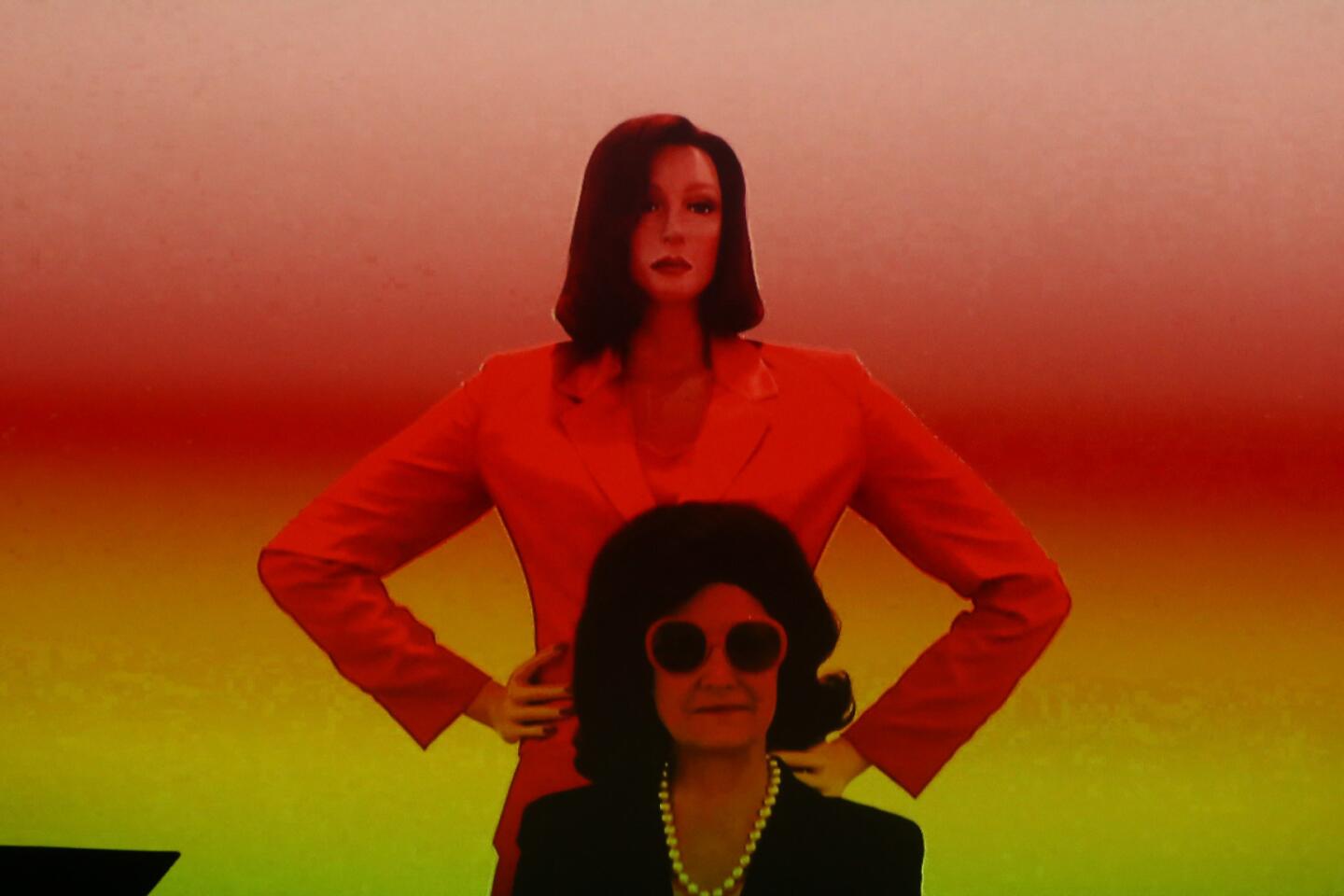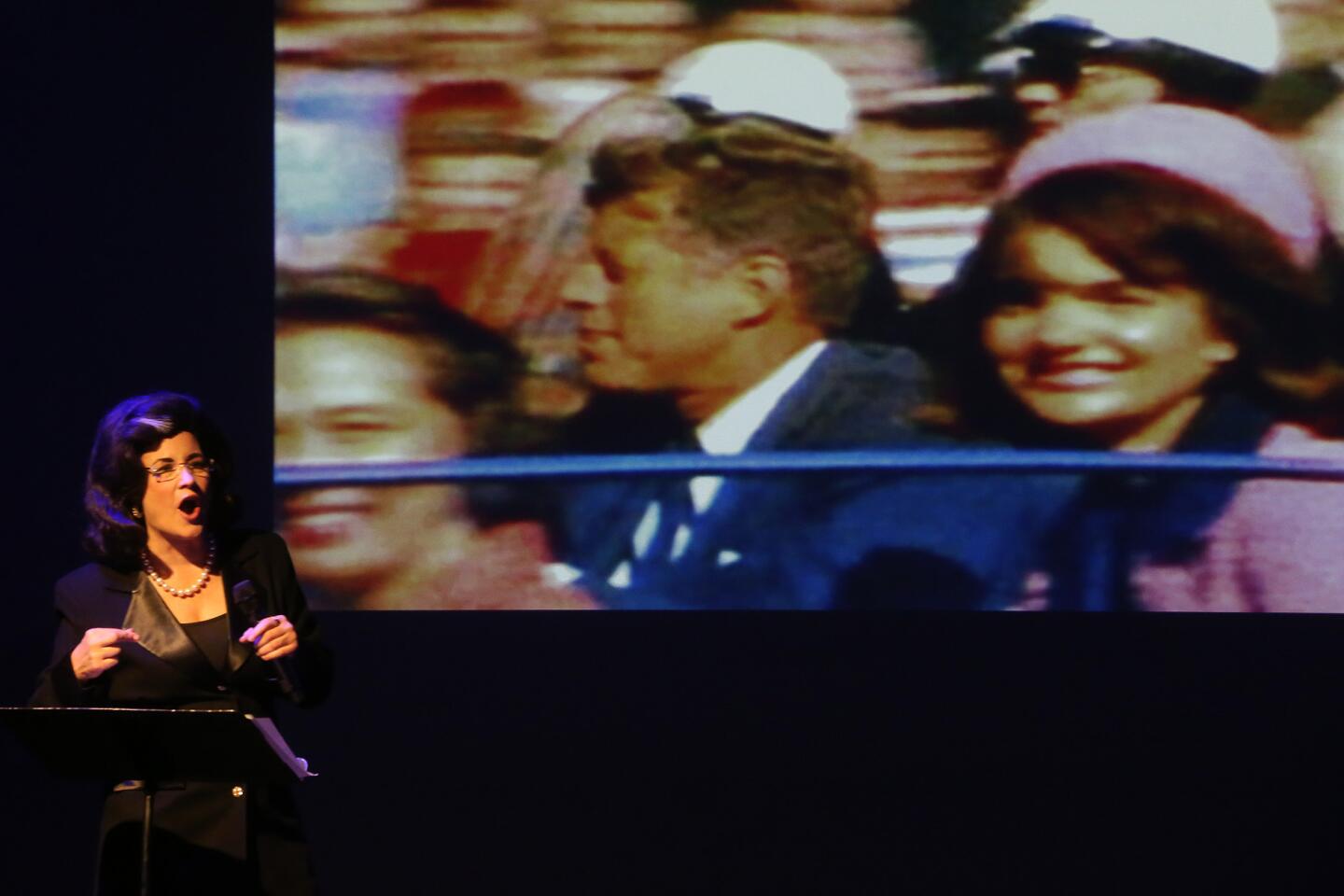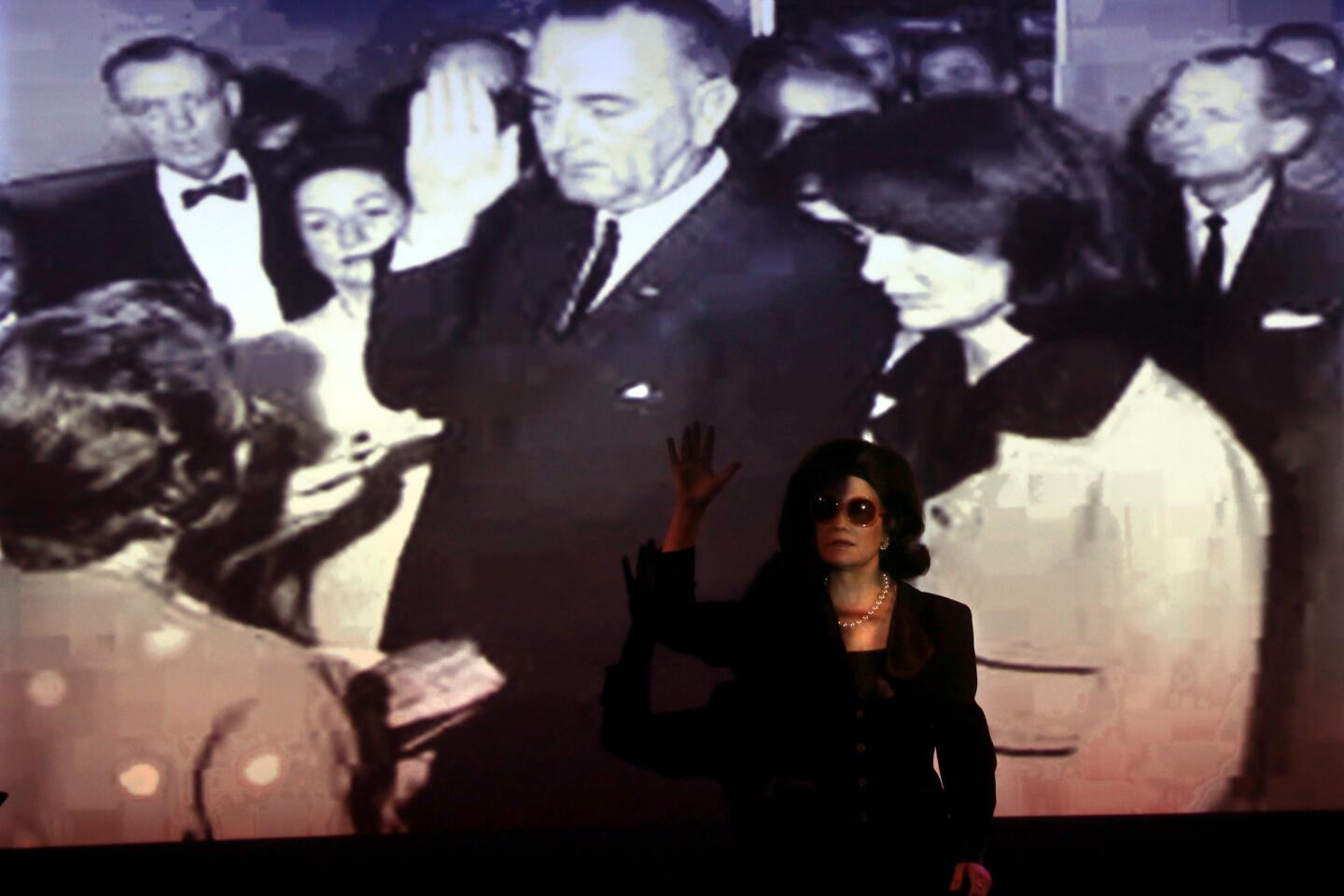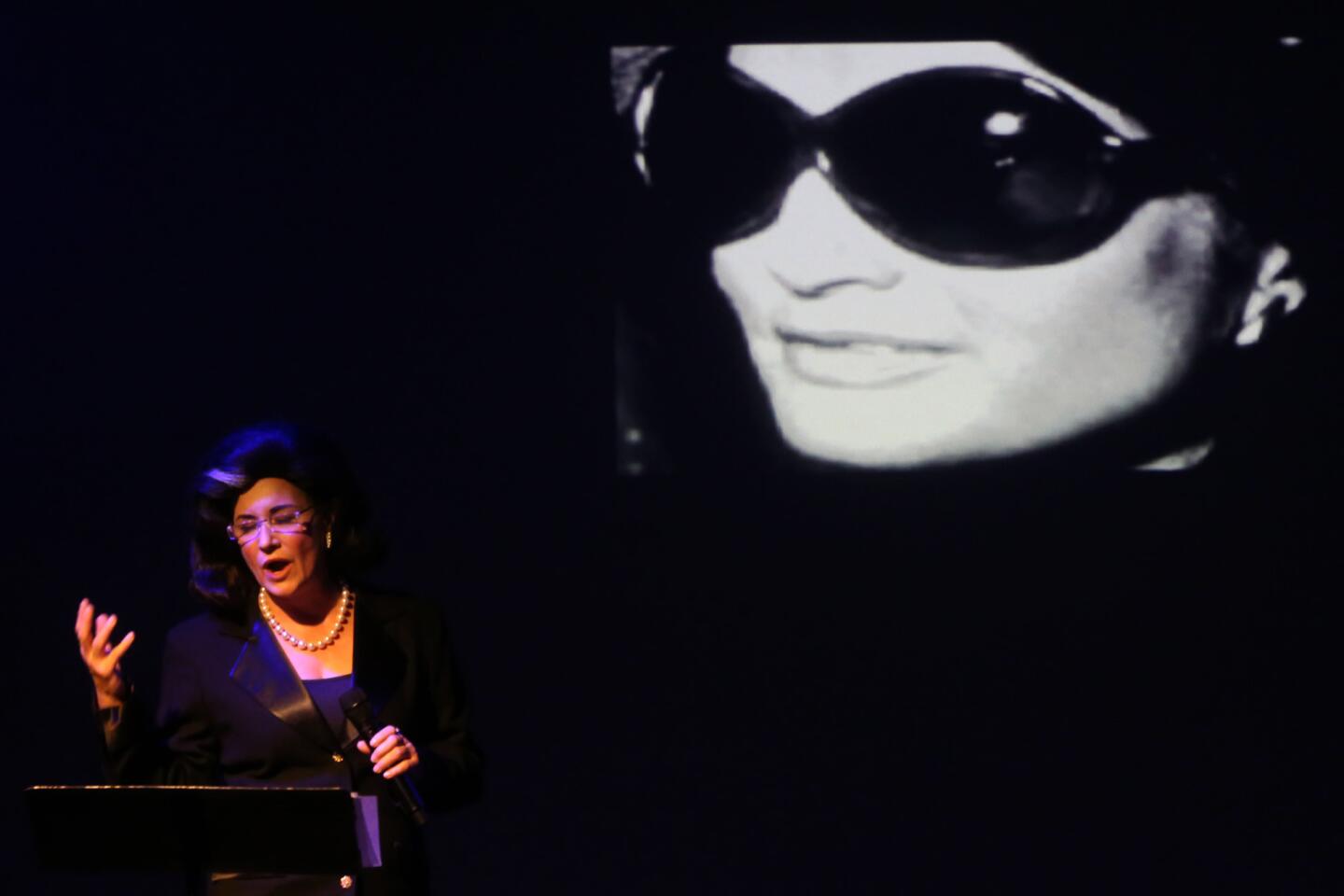For Karen Finley, Jackie O. is for outrage in ‘The Jackie Look’
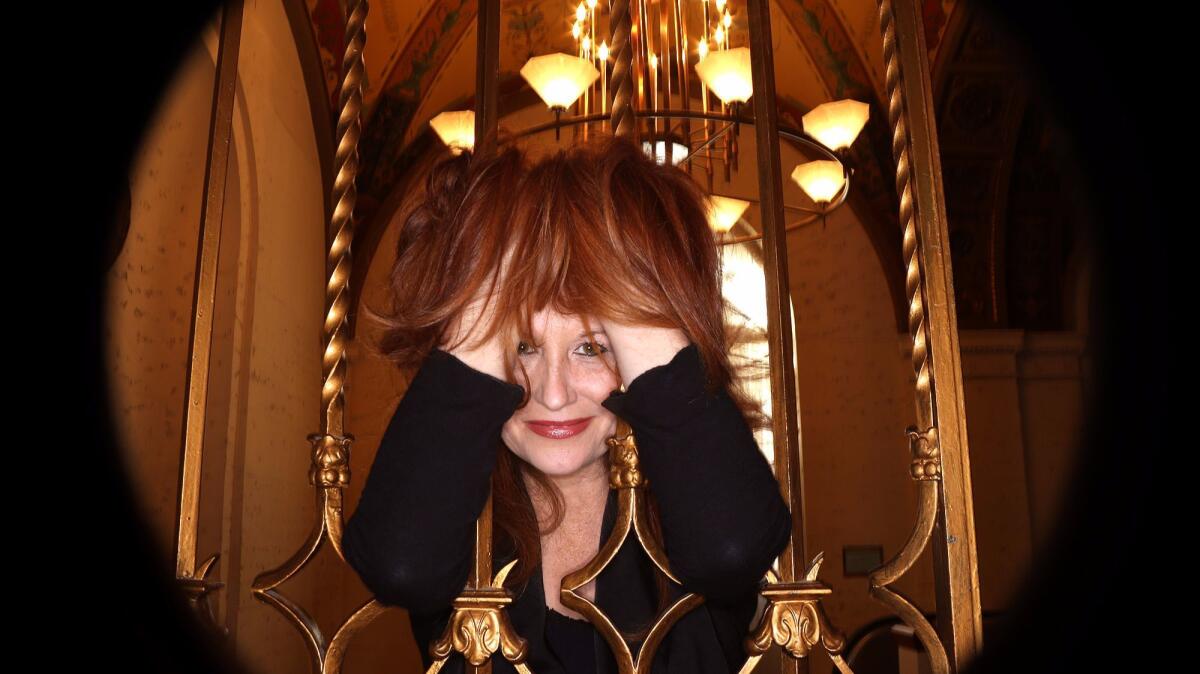
- Share via
Karen Finley is an artistic first responder.
The high priestess of performance art arrives in the midst of cultural emergencies armed with monologues, paintings, books, music and memorials. In a career that’s spanned the globe and nearly 40 years, few perceived social injustices, including reproductive rights and the marginalization of people with AIDS, have escaped Finley’s figurative scalpel.
This weekend at the Broad museum in Los Angeles she addresses what she calls “the casualization” of violence in a sold-out, one-woman show, “The Jackie Look,” which plays in conjunction with the opening of an exhibition of her new visual art at the Coagula Curatorial gallery in Chinatown.
SIGN UP for the free Essential Arts & Culture newsletter >>
“The Jackie Look” finds Finley embodying Jacqueline Kennedy Onassis in order to examine how humans view and process trauma. She first performed the piece five years ago, but its relevance is continually updated with each fresh human tragedy that publicly unfolds in our increasingly connected world. The recent attacks in Paris, for example, will be addressed, Finley says.
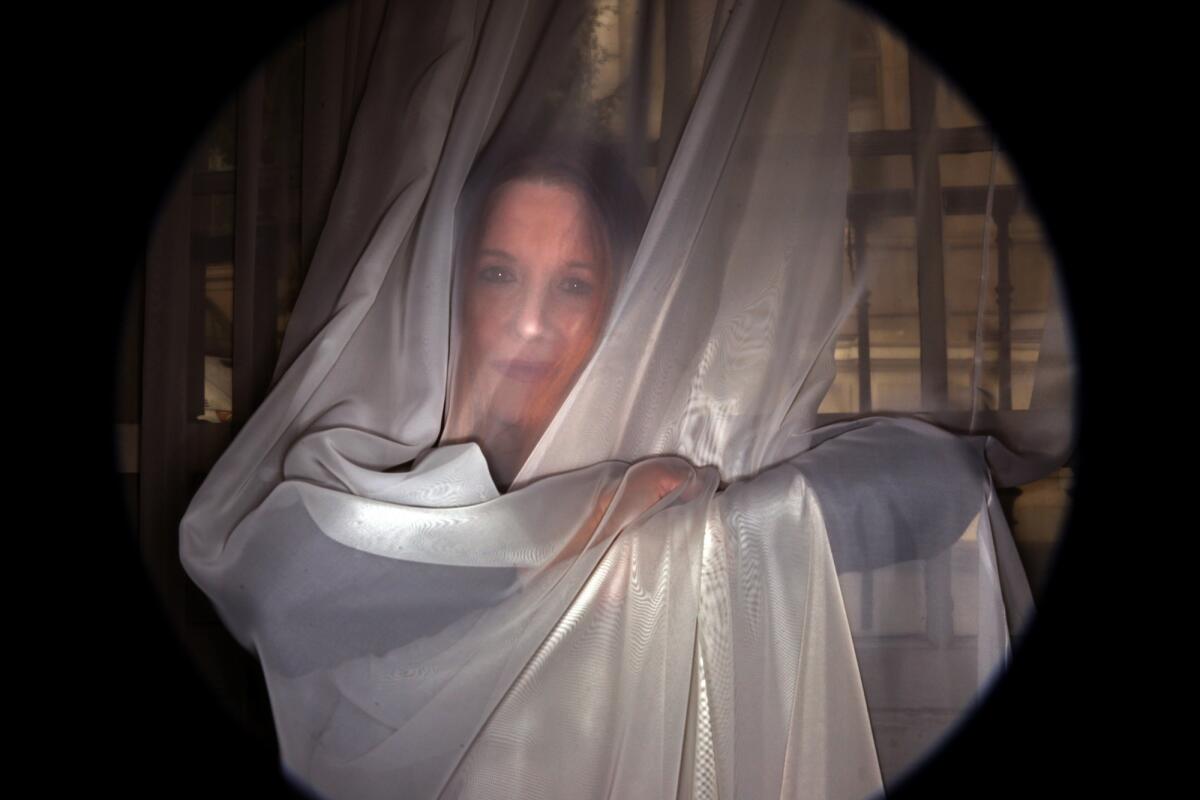
Performance artist Karen Finley.
“I’m using Jackie and her trauma as a replacement for all of our lives and how we view trauma,” Finley says on a recent morning at the historic Millennium Biltmore Hotel in downtown Los Angeles. Finley, who traveled to L.A. from New York, where she is a professor at Tisch School of the Arts, picked the hotel by design: It was a key location during the 1960 Democratic convention that led to the nomination of John F. Kennedy for president.
Sunday marks the 52nd anniversary of Kennedy’s assassination, a fact that also played into Finley’s selection of the piece for the premiere performance in the Broad’s “The Tip of Her Tongue” series. Curated by UC Riverside English professor Jennifer Doyle, the series features feminist artists in performance, with additional programming continuing next year.
“There’s something so incredibly vital about Karen’s writing and performances,” Doyle says. “The experiences behind her stories challenge our ideas about what a story is and can be. Her work is somewhere between poetry, a furious rant and a surreal dream. It’s very experimental but also very accessible in the way that music can be.”
At 59, Finley looks a decade younger — her long hair a fiery red, her face smooth and minimally lined. She wears a long black skirt, a black top and black peep-toe shoes. She is trim and alert, opting to sit on the steps of a stairwell in order to talk quietly rather than in the noisy lobby. Her voice is unexpectedly soft and controlled, in stark contrast to the harsh subject matter of much of her work.
“I’m Karen Finley, I can handle it,” she says with a wry smile, and it’s difficult to imagine a time when that wasn’t true.
The unflinching nature of Finley’s work, which over the years has dealt with taboo subjects including rape, incest, alcoholism, censorship and the contradictory celebration and repression of female sexuality, has earned her the title of “shock artist.” Finley gained worldwide notoriety in the 1990s for being a member of the “NEA Four,” a group of performance artists whose proposed grants from the National Endowment for the Arts were vetoed by then-NEA Chairman John Frohnmayer. The case wound its way to the Supreme Court, where Finley ultimately lost.
Although Finley acknowledges that her art can be shocking, she says that what is truly shocking are the times we live in. The fact, for example, that a group of high school students can have their lives seriously damaged by sexting, as was recently seen in Colorado, while graphic violence on television and in video games is considered perfectly acceptable.
“I wish that we looked at images of violence in the same way we look at sexual imagery,” she says. “And I wish there was a displacement where we could have a taboo for violence instead.”
As an artist, Finley sees herself as a “historical recorder” and says that art’s response to current events provides a lens through which humanity can view fraught situations or issues. If her engagement with the issue — her chosen response — causes a shift in how her audience thinks about it, then her work has been successful.
“I think my power is that I’m able to possess an emotion that is not traditionally processed or expressed in everyday life,” explains Finley. “How do you portray absence, for example? With Jackie I’ll be looking at the losses of the Kennedy family and I think some questions will be answered for my audience and they’ll maybe understand their own cultural response to loss.”
Finley’s performances are raw, unmasked and often uncomfortable. She is not afraid to scream or cry or sit quietly staring off into space. Her damaged nerves and wounded emotions hurt to look at. She bears the pain of others and in the process their personal suffering becomes communal. Within that space she finds peace.
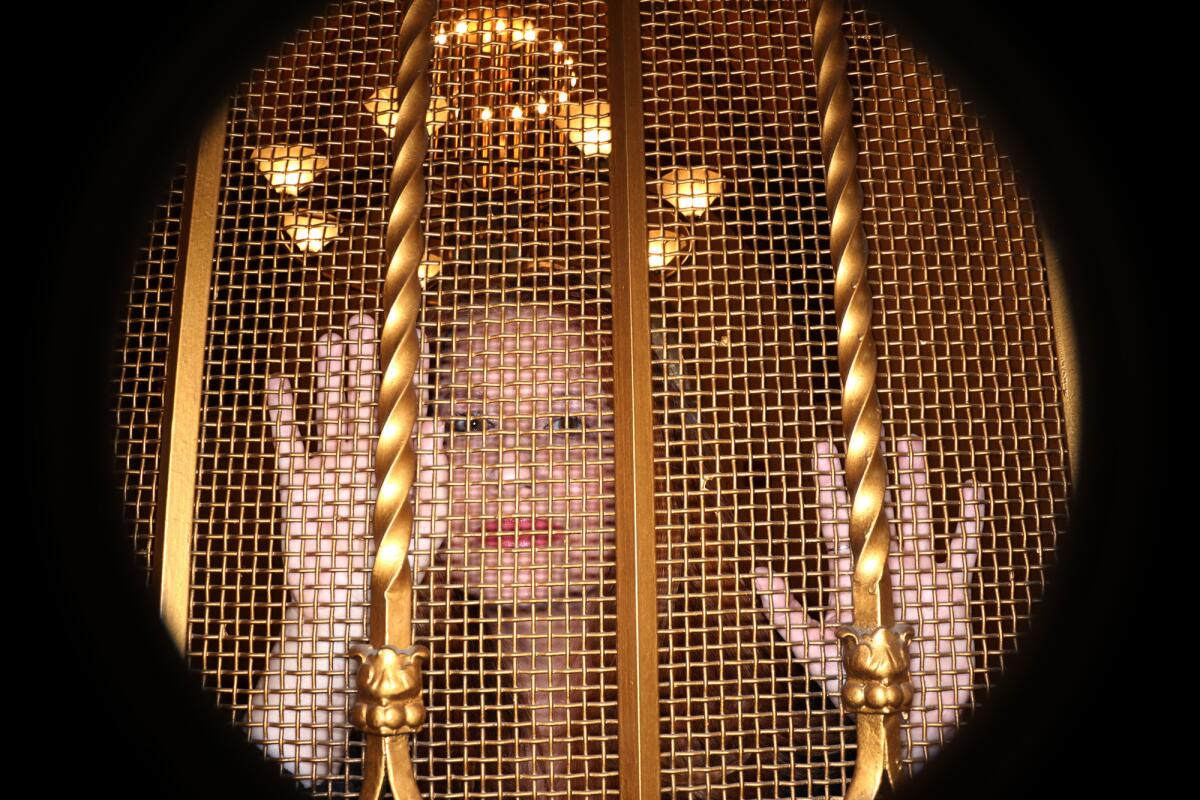
Performance artist Karen Finley.
“There’s this one moment where time is suspended,” Finley says of her live shows. “And within that I find it very relaxing in a way. I can feel the energy of my audience and the human attention.”
Finley is not selective in the ways she engages with human attention, which is why she’s equally excited to display a selection of her new visual art at Coagula Curatorial. The exhibition, titled “Love Field” after the Dallas airport where the Kennedys landed on Nov. 22, 1963, the day of the assassination, contains reworkings of images surrounding the Kennedy killing including camera misfires from that day.
Finley has also painted a variety of images of Onassis inspired by Warhol’s paintings of the famous first lady, which coincidentally happen to be on display at the Broad, a fact that Finley says adds a nice bit of historical resonance to her L.A. appearances.
Back in New York, Finley will turn her attention to her current twin obsessions: religion and politics. She has plans to take on the pope, who she says is not as wonderful as his champions would have people believe, largely because of his silence on gay rights.
“That,” Finely says, “is going to be shocking.”
Follow me on Twitter @jessicagelt
------------
The Tip of Her Tongue: Karen Finley and ‘The Jackie Look’
Where: The Oculus Hall at The Broad, 221 S. Grand Ave., Los Angeles
When: 7 p.m., Saturday
Tickets: $30 (sold out)
Info: (213) 232-6250, thebroad.org
What: Karen Finley: ‘Love Field’
Where: Coagula Curatorial, 974 Chung King Road, Los Angeles
When: Wednesday-Sunday 1-6 p.m., Nov. 21-Jan. 3; opening reception Saturday, 7-11 p.m.
Info: (424) 226-2485, coagulacuratorial.com
More to Read
The biggest entertainment stories
Get our big stories about Hollywood, film, television, music, arts, culture and more right in your inbox as soon as they publish.
You may occasionally receive promotional content from the Los Angeles Times.

